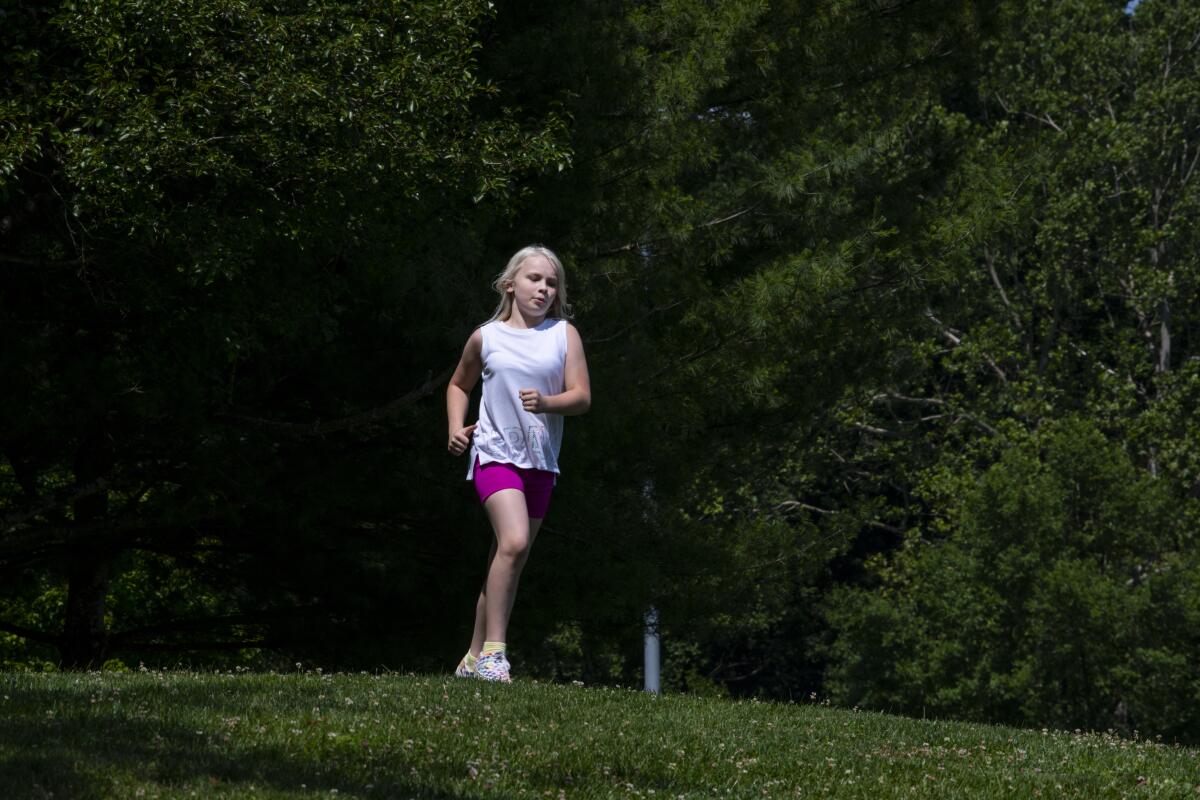Supreme Court says 12-year-old transgender girl may compete against other girls in West Virginia

WASHINGTON — In its first decision involving transgender students and sports, the Supreme Court on Thursday refused West Virginia’s bid to bar a 12-year-old transgender girl from competing on the girls’ track team at her middle school.
With two conservatives in dissent, the court turned down an emergency appeal from the state’s lawyers, who were defending a 2021 law that would classify students based on how their sex was labeled at birth, rather than how they identify.
A federal appeals court had put the measure on hold while it considered legal and constitutional challenges to it.
The court gave no explanation for its decision, but Justices Samuel A. Alito Jr. and Clarence Thomas said they would have put the law into effect.
While the court’s action sets no precedent, it sends a signal that the justices are not ready to quickly approve laws that discriminate against transgender people.
California and 21 other mostly Democratic states forbid discrimination against transgender students.
The West Virginia law was similar to measures in 17 Republican-led states that focus on how a student’s gender was identified at birth.
If enforced, the state law would have prohibited a 12-year-old transgender girl Becky Pepper-Jackson from running on the girls’ cross-country and track teams at her middle school in Bridgeport, W.Va.
She and her mother said she knew she was a girl, not a boy, before she began school. She “has lived as a girl in all aspects of her life for years and receives puberty-delaying treatment and estrogen hormone therapy, so has not experienced (and will not experience) endogenous puberty,” they told the court.
She has been an enthusiastic member of the girls’ cross-country team, even though she is not a fast runner and usually finished well back in the pack. Her school had welcomed her participation until the state adopted the law.
In 2021, she sued and won before a federal judge who noted “not one child has been or is likely to be harmed by B.P.J.’s continued participation on her middle school’s cross-country and track teams.” He issued a preliminary injunction to block enforcement of the law.
But in January, the judge reversed course and upheld the law. He said it did not violate the Constitution’s guarantee of equal protection of the laws nor Title IX, the education law that forbids discrimination based on sex.
The ACLU appealed on her behalf, and the 4th Circuit Court, in a 2-1 order, put the judge’s decision on hold. The two judges in the majority did not explain their reasons.
On March 9, West Virginia Atty. Gen. Patrick Morrisey announced he was “taking the fight for fairness in women’s sports all the way to the U.S. Supreme Court.” He sought an emergency order from the high court allowing the law to take effect.
In adopting the Save Women’s Sports Act, West Virginia lawmakers voiced concern that transgender girls could have an unfair advantage if they could compete on the girls’ teams in schools or colleges. They pointed to incidents in other states where high school girls who were sprinters, swimmers or volleyball players allegedly “found themselves falling behind or pushed aside by biologically male athletes,” the state said.
Morrisey told the court the law “just seeks to accommodate physiological differences rooted in biological sex in a context where those differences matter.”
On Thursday, Morrisey said he was disappointed. “This is a procedural setback, but we remain confident that when this case is ultimately determined on the merits, we will prevail,” he said in a statement.
The ACLU and Lambda Legal had denounced the state’s emergency appeal as a “petty and baseless move” and welcomed the decision.
“We are grateful that the Supreme Court today acknowledged that there was no emergency and that Becky should be allowed to continue to participate with her teammates on her middle school track team, which she has been doing without incident for three going on four seasons,” they said.
California Atty. Gen. Rob Bonta had joined with attorneys for 17 other Democratic-led states in urging the court to block the West Virginia law as unconstitutional.
“Because the sole function of West Virginia’s law is to exclude and stigmatize transgender girls like B.P.J., it violates equal protection under any level of scrutiny,” the Democratic attorneys said in a friend-of-the-court brief.
They said California and other states have prohibited discrimination against transgender athletes for a decade.
“The Los Angeles Unified School District, one of the largest school districts in the country, has implemented a transgender-inclusive sports policy for many years without problems,” they told the court. “The district’s policy has led to a positive ‘transformation’ in the district’s schools: an experience that stands in stark contrast to expressed concerns that students will abuse the policy.”
The case was West Virginia vs. B.P.J.
The Supreme Court has not formally ruled in a case involving transgender students. But three years ago, the justices ruled transgender employees are protected from job discrimination under the federal civil rights laws.
The court’s opinion, written by Justice Neil M. Gorsuch, said the law prohibited discrimination based on sex, and discrimination against a transgender employee fit that definition.
More to Read
Get the L.A. Times Politics newsletter
Deeply reported insights into legislation, politics and policy from Sacramento, Washington and beyond. In your inbox three times per week.
You may occasionally receive promotional content from the Los Angeles Times.











